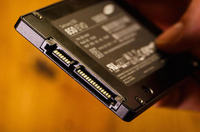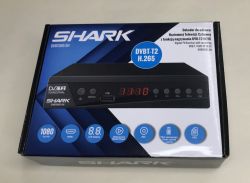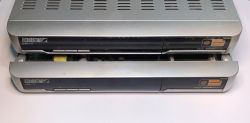
As is well known, SSDs are the successors of traditional hard drives that operate using magnetic media. The new generation exceeds the old one with various parameters, e.g. faster reading and writing or no need to defragment. After all, Zack Whittaker in his article proves that data stored on flash drives is vulnerable to corruption just by ... just not supplying power to this device for some time.
The problem mainly concerns rooms that are not properly adapted to provide conditions suitable for storing such disks. We are talking mainly about the prevailing ambient temperature, because it turns out to be the main harmful factor. Depending on the temperature, files can last for several months, weeks, or at worst - just a few days.
To illustrate the problem, Alvin Cox, the drive developer for Seagate, made a demo. It shows that the lifetime of stored data is reduced by half for each 5 ° C increase in ambient temperature. This means that at around 25 ° C the data will last approximately two years. In 30 degrees, this time will be reduced to only one year.
However, the problem does not affect all disks in the same way - it depends on what quality shelf the medium is on. High-end computers can boast of high quality (laptops of all kinds - for example, Apple MacBooks), which offer a data retention time of about two years at an appropriate temperature. The situation is different with budget products - these are more sensitive to temperature than the high-end models, and here the problem is felt completely (an increase by 5 ° C reduces the average data storage time from 20 weeks to just 10). However, it should be remembered that if we use a given disk quite often, nothing should threaten us.
Therefore, it is worth paying attention to the environment in which the SSD drive is located (nowadays this type of devices is more widespread in the consumer sector than in the professional sector - a thorough replacement of drives is an additional cost for the enterprise, and often these have special rooms for computers to they worked in optimal conditions) - for the security of their own data, and then not to worry where our family photos or films "escaped" to us.
Source:
http://www.zdnet.com/article/solid-state-disk...ta-if-left-without-power-for-just-a-few-days/
Cool? Ranking DIY








